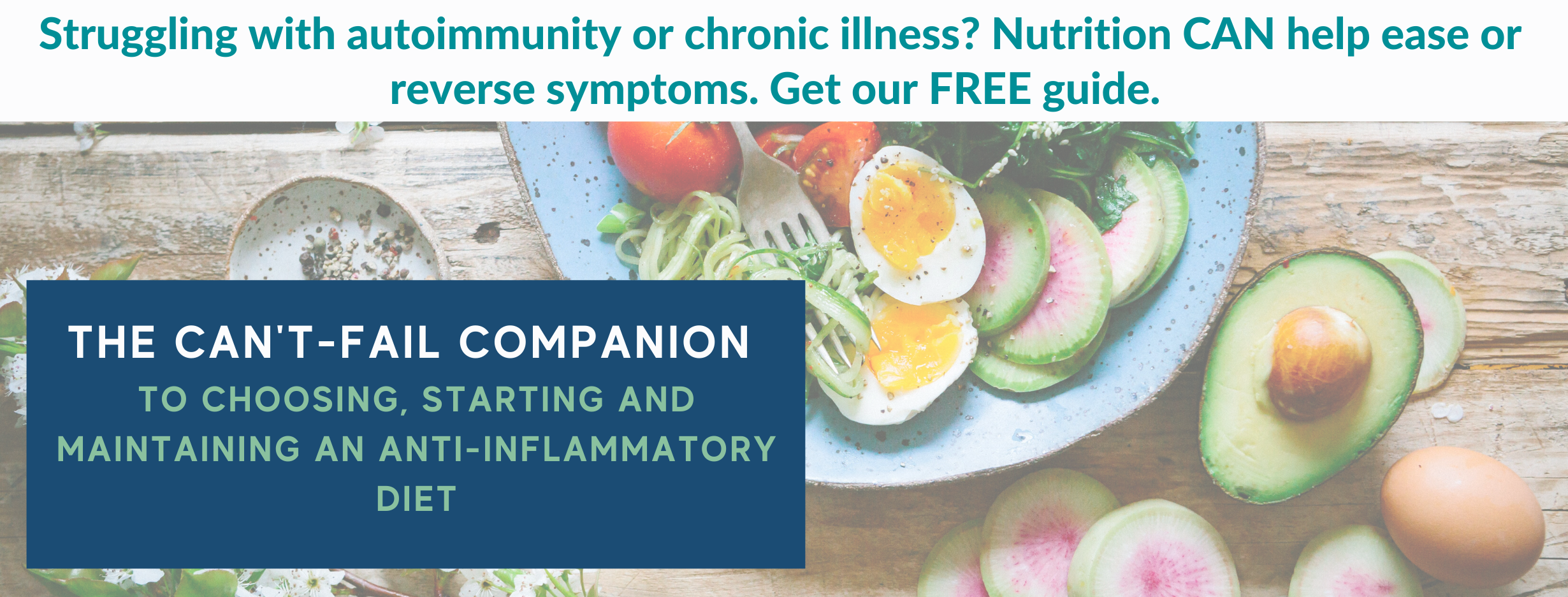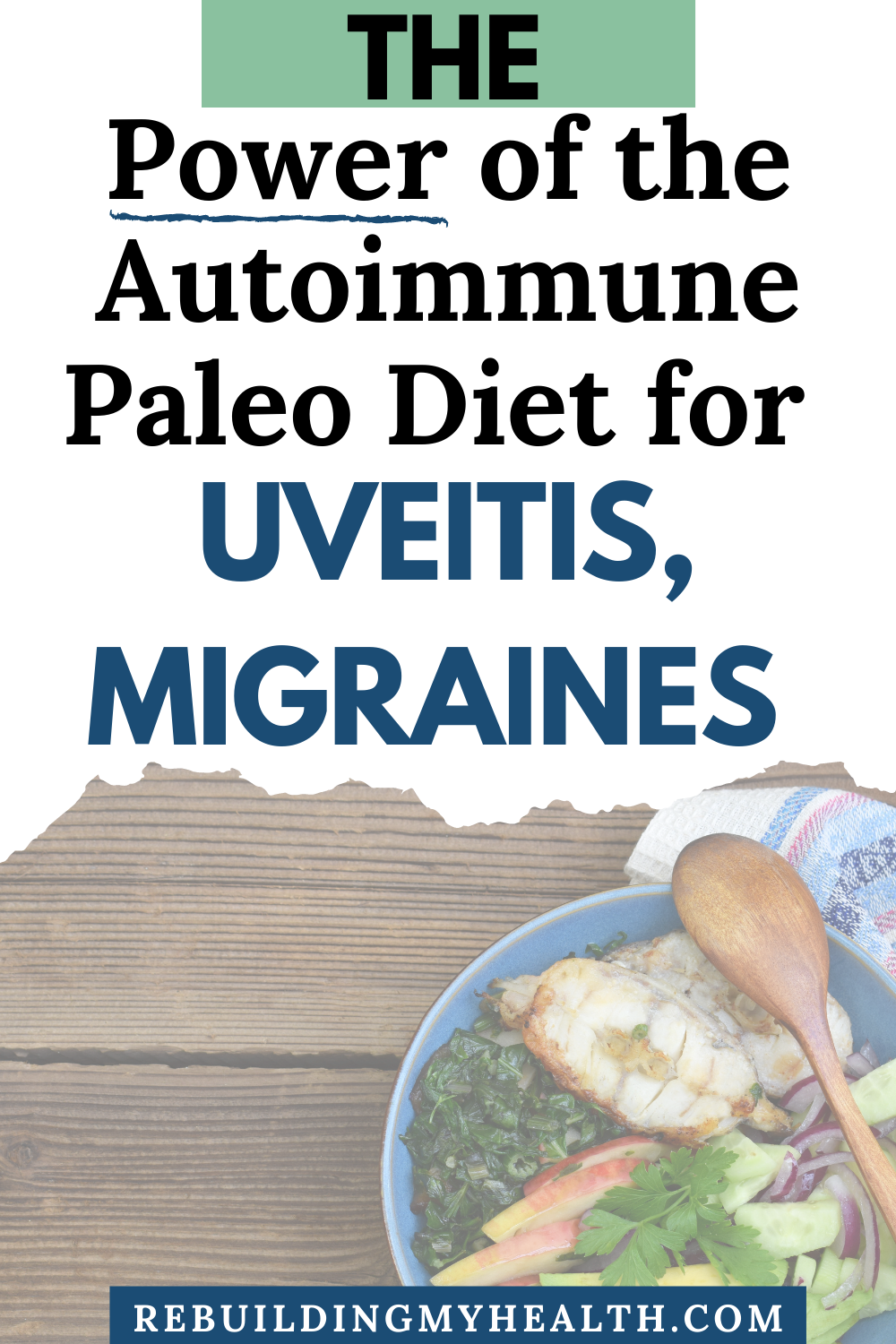Doctoral Candidate Trades Meds for the Autoimmune Protocol Diet for Uveitis, Migraines
“The only thing that helped uveitis was food, reducing my stress and working out. And in an effort to heal that, I found I can almost completely get rid of my migraines. The results were incredible.”
– Erica
As a sophomore in college, Erica Hilton woke one morning to find her vision suddenly cloudy and her eyes sensitive to any light.
With a trip to the eye doctor, she learned she was experiencing a uveitis flare, inflammation of the eye that can stand alone or be accompanied by other autoimmune conditions.
With no other symptoms, Erica applied the recommended steroid drops and saw her vision clear quickly.
She went on to finish college and begin working as a communications professional. Then uveitis hit again, this time two to three years later. Again, steroid drops took care of it.
It became a pattern, with Erica suffering uveitis every couple of years…until it came to stay.
“My flares were two to three years apart, each time,” she says. “Then in 2013, I had a flare that lasted for weeks and then months.”
About the same time that uveitis began, so did regular migraines.
As a graduate student working toward her PhD in communications, Erica occasionally had to miss class.
“With uveitis, any light is painful to the eye,” she explains. “It could be daylight, or from a screen. When I had a flare, I had to lock myself in a room with blackout lights.”
THREE Immunosuppressant Medications – with No Relief
With chronic uveitis, this time, drops didn’t cut it. Her doctor recommended an immunosuppressant medication typically used as a chemotherapy drug for cancer patients, Methotrexate.
On it, however, she saw no change in the pain or light sensitivity.
For fresh ideas, she visited a new physician in Boston, who prescribed Cyclosporine, a second immunosuppressant drug that is typically used in organ transplant patients.
Still, Erica’s uveitis persisted.
The doctor then added a third immunosuppressant, Humira.
Even with that trio of heavy-hitting drugs, Erica still suffered from the effects of uveitis. Regularly dilating her eyes, at least, took care of the pain.
“My doctor wanted to add Remicade into the mix,” she says. “That would be my fourth medication. At this point, my mom and I talked about it and it was like, ‘OK, this is getting ridiculous!’”
Autoimmune Protocol Diet for Uveitis
Erica had learned about and researched the autoimmune protocol diet (AIP). People with autoimmune conditions of all types turn to the diet to reduce their inflammation, often with significant success.
Up to that point, she hadn’t been eating or living particularly cleanly as a grad student or young professional.
With nothing to lose, she jumped in, following the diet strictly for 34 days. Then, she eased into a more relaxed paleo-style diet.
That experiment was an overwhelming success. Her eyes cleared, and as a major bonus, her migraines went from twice a week to every two months.
“AIP really cleaned up my system and allowed my body to do what it’s supposed to do,” she says. “I went a year without a flare.”
Signs of Liver Distress
During her diet changes, Erica had remained on the three immunosuppressant medications.
A year after beginning the AIP and paleo diets, Erica began experiencing digestive pain and blood in her stool. Doctors quickly suspected Crohn’s disease because uveitis is often associated with the eye condition.
One doctor initially diagnosed her with Crohn’s, based on signs of damage.
However, a second physician conducted a more thorough and long-term assessment before ultimately ruling out Crohn’s.
At the same time, Erica’s uveitis flared again and her migraines were coming on more frequently.
After one round of tests, Erica picked up her lab work, as usual, to look at it herself.
“I started showing signs of liver damage and I knew that this was probably because of the medications that I was on,” she says. “But the awesome specialist I had seen never even called to say my liver was off.”
“I just up and quit all three medications,” she adds. “I wouldn’t suggest other people do that. The doctors were very unhappy with me, but I was really disappointed in the care that I was receiving.”
Less Stress, More Exercise
Off medications, Erica refocused on the AIP diet, which had been so successful previously. Again, she followed the protocol religiously for a month.
Back on the diet, her migraines stopped for a six-month stretch. Before, they had come on – with military precision – twice a week.
Erica had also noticed a connection between flares and stress. So along with diet, she cleaned up her lifestyle by actively trying to manage her stress and exercising.
“The only thing that helped uveitis was food, reducing my stress and working out,” she says. “And in an effort to heal that, I found I can almost completely get rid of my migraines. The results were incredible.”
Flare- and Migraine-Free
Erica did ultimately find a physician who supported her dietary approach to uveitis, Dr. Matthew D. Coates at Penn State Hershey Gastroenterology.
“He hadn’t heard much about the AIP diet, but understands that food heals the body,” she says. “He suggested I take two months on the diet and then we’d take another look at my colon.”
Dr. Coates was also the one to find that Erica had the bacteria, Clostridium difficile (C. diff) – the likely cause of her digestive issues. The symptoms of C. diff can include diarrhea, abdominal cramping and inflammation of the colon.
After two months on the autoimmune protocol diet for uveitis, and taking antibiotics for C. diff, Erica was flare-free and suffered no migraines. Additionally, checks of her colon and liver indicated that both of those had returned to normal.
At the same time, Erica worked to heal her liver with detox practices such as drinking dandelion root and milk thistle teas. She also started taking turmeric, omega-3, vitamin D3 and probiotics to reduce inflammation and support her immune system.
Grateful for a Healing Diet
A couple of years ago, Erica told a friend that her goal was to be off all medications by the time she was 30.
Now 30, she’s proud and relieved to say that she’s reached that goal. No more painful Humira injections, which would inspire panic attacks due to her fear of needles.
Today, the only remaining sign of her uveitis is occasional light sensitivity. For that, she continues using steroid drops, but hopes to get off of them at some point.
Erica now works as a communications manager for a nonprofit in D.C. while continuing to complete her doctoral dissertation.
These days, she alternates between AIP and a more traditional paleo diet, using AIP as a reset when needed.
“My diet isn’t perfect,” she says. “I’ll go from a strict AIP diet one week to eating what I want. I remind myself, ‘You’ve done this before. You know what it takes to heal your body.’”
Erica has found joy in cooking and in the nourishing meals she creates. She travels a fair amount, and continues the diet while on the road. For help, she often carries a Hot Logic portable food warmer to ensure she can always heat up her food.
“I was on a train on Friday and people were getting pizza,” she recalls. “I heated up my chicken meat for lettuce wraps. My train car filled up with the delicious smell and I was like, ‘Yeah, this is better than what anybody else is eating!”
Such a diet isn’t easy but it is worth it, Erica stresses.
“Sometimes medications are necessary, but I believe it’s also important to try alternative healing practices,” she says. “My message for people trying to heal themselves with other methods is to be kind to yourself. If you mess up, start over. Keep going because the difference is incredible. I’ve had better results with diet than on three immunosuppressant medications.”
Erica’s Tips for Following a Healing Diet
- Meal prep for the week – Erica preps her meals on Sundays so she’s never caught without compliant foods.
- Create a list of restaurants – Keep a list of places where you can find food that fits your diet.
- Tell others why you’re eating this way – If those around you know why you’re eating this way, they will more likely be on board and support your efforts.
“I’m lucky that people in my corner are so supportive,” she says. “Some of them don’t care about eating healthy themselves, but they are really conscious of the fact that I was trying to eat healthy and would try to make food for me.”
You can follow Erica on Instagram for AIP meal inspiration.
The information on this site is for educational and inspirational purposes only and is not intended to replace the advice of qualified professionals. Keep in mind that what works for one person may not work for another. Always consult your healthcare practitioners before beginning new approaches or treatments. Some links on Rebuilding My Health may be affiliate links. This means that we may receive a commission - with no additional cost to you - if you make any purchases using those affiliate links. Rebuilding My Health is a participant in the Amazon Services LLC Associates Program. Learn more.



